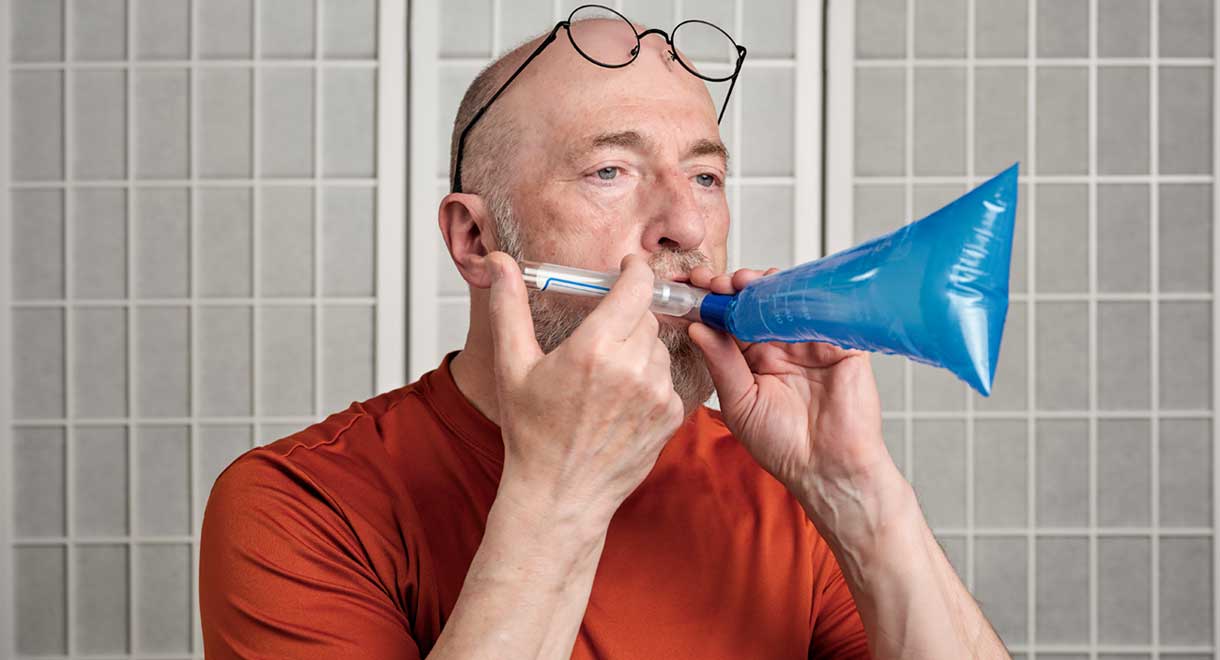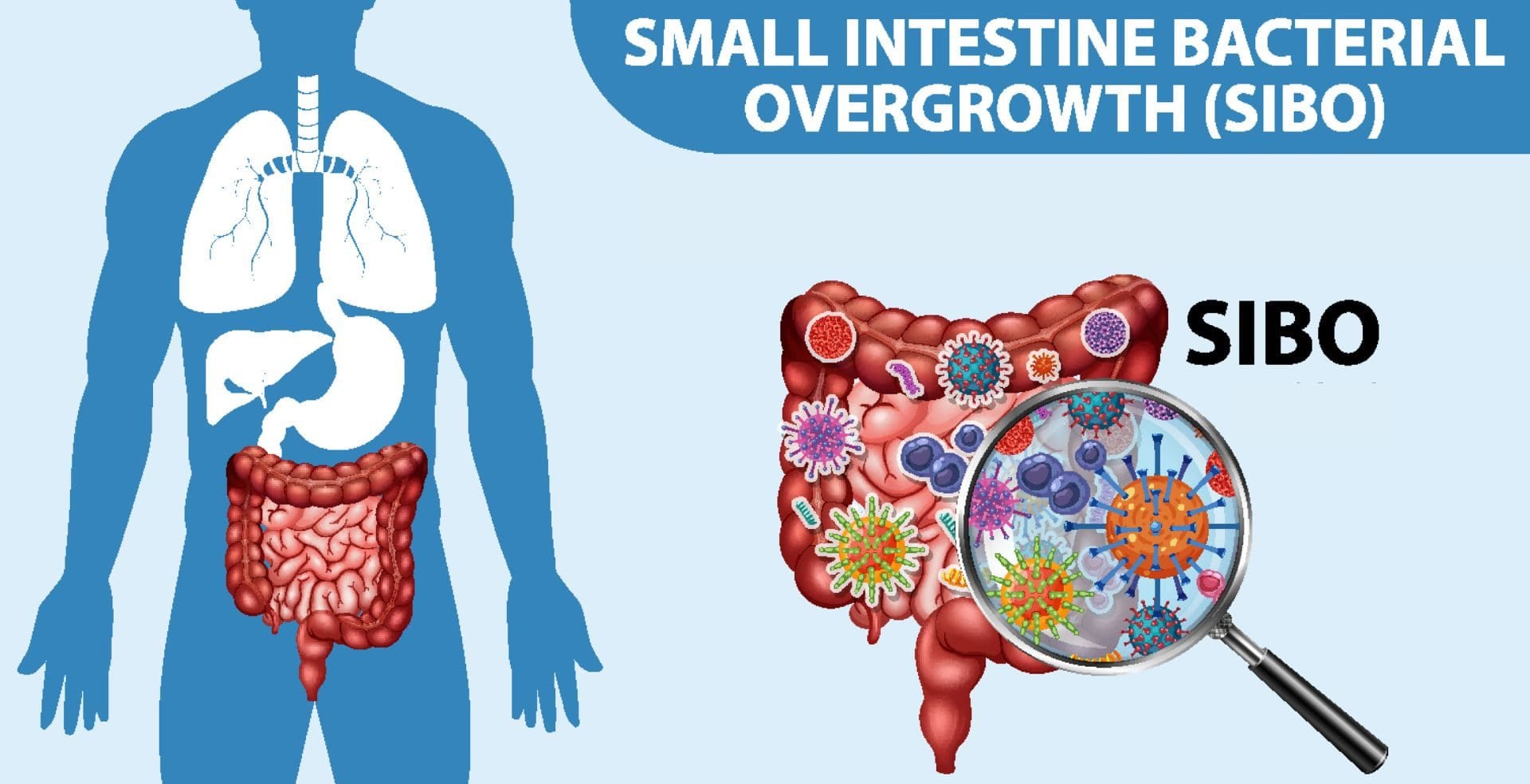Should you have a breath test for SIBO (Small Intestinal Bacterial Overgrowth)?
By naturopath Margaret Jasinska
Small Intestinal Bacterial Overgrowth (SIBO) is an increasingly common condition. It can cause irritable bowel syndrome (IBS) and leaky gut. In this way, it can contribute to nutrient deficiencies and predispose a person to autoimmune disease.
Finding out if you have SIBO, and treating it is necessary if you have a gut or autoimmune issue. A breath test is considered to be the conventional way to diagnose SIBO. Recent research has shown the breath test is not always reliable and some doctors recommend skipping it. This recommendation is particularly for people with diarrhoea-dominant irritable bowel syndrome.
What is SIBO?
SIBO is defined as an increased number of bacteria in the small intestine. The condition encompasses yeast overgrowth such as Candida too. This article focuses on bacteria. There is not supposed to be a lot of bacteria in your small intestine. This part of your intestine is designed for nutrient digestion and absorption. Most of the bugs in your gut are supposed to live in your colon (large intestine). Having too much bacteria in the small intestine can make you feel bloated and it can cause symptoms of irritable bowel syndrome such as abdominal cramps, gas, heartburn, reflux, diarrhoea or constipation. New research has shown that many cases of irritable bowel syndrome are actually caused by SIBO. An overgrowth of bacteria in the small intestine inflames the lining of the gut. This leads to leaky gut, which can be a forerunner to autoimmune disease.
Breath test for SIBO
This is a non-invasive test that measures the amount of hydrogen or methane that you exhale after drinking a mixture of glucose and water, or lactulose. A rapid rise in exhaled hydrogen or methane possibly indicates bacterial overgrowth in your small intestine. Although widely used, breath testing is less accurate than another type of test called small intestine aspirate and fluid culture. This is currently the gold standard test for SIBO. To obtain a fluid sample, a doctor passes a long, flexible tube (endoscope) down your throat and through your upper digestive tract to your small intestine. A sample of intestinal fluid is taken and then tested in a laboratory for the growth of bacteria. This is a far more invasive and expensive test, and also isn’t 100 percent reliable, therefore in common practise is not often done.
The breath test is not always reliable
According to IBS expert Lin Chang, MD, a professor and vice chief of the division of digestive diseases at the University of California, Los Angeles, SIBO breath tests are unreliable and hence she doesn’t order them. Even if a patient gets a positive result, “you don’t really know if they have SIBO or not. Sometimes healthy controls have a positive test, and some people with IBS who end up responding to rifaximin have a negative breath test. It’s up to you, [but] it doesn’t correlate” with outcomes, she said. Rifaximin is the most commonly used antibiotic for SIBO. Dr Chang has said “I just treat patients who meet the criteria used in the clinical trials,” such as abdominal pain, bloating and diarrhoea.
Strategies to overcome SIBO
Rifaximin is the usual antibiotic given for SIBO. It can be very helpful, but it isn’t perfect. Some people experience significant symptom reduction while on it, but symptoms return as soon as they stop. From my experience this even occurs in people eating an exceptionally healthy diet that is free of sugar and refined carbohydrate. Some patients need repeated courses to overcome SIBO. We have found that herbal antimicrobials and diet changes are usually more effective.
- The herbs oregano, clove, thyme and berberine are found in BactoClear capsules. They may help with the symptoms of medically diagnosed irritable bowel syndrome.
- Changing your diet is essential. It is important to stop consuming sugar and highly refined carbohydrates like white flour, rice, breakfast cereals and pasta. Some people need to restrict fermentable carbohydrates for a period of time by going on a low FODMAP diet.
- It is vital to improve digestive function, as people with SIBO usually don’t produce enough hydrochloric acid in their stomach and they do not produce enough digestive enzymes. These can be taken in supplement form and can help to prevent the SIBO from returning after it has been successfully treated.
- Gut and liver health can be significantly impaired by SIBO. The bacteria cause leaky gut, and then gut wastes leak to the liver, overwhelming its detox abilities. Dr Cabot’s 15-Day Cleanse is a comprehensive 3 part program designed to heal the gut lining, improve liver health and strengthen the immune system.
- Some people with SIBO experience significant constipation. This is sometimes due to excess levels of methane-producing bacteria in the gut, which interferes with normal intestinal peristalsis. The treatment of constipation can vary for different people. Sometimes reducing or eliminating certain plant fibre can be immensely helpful.
For more information about SIBO see the book Healing Autoimmune Disease: A plan to help your immune system and reduce inflammation.









Leave A Comment